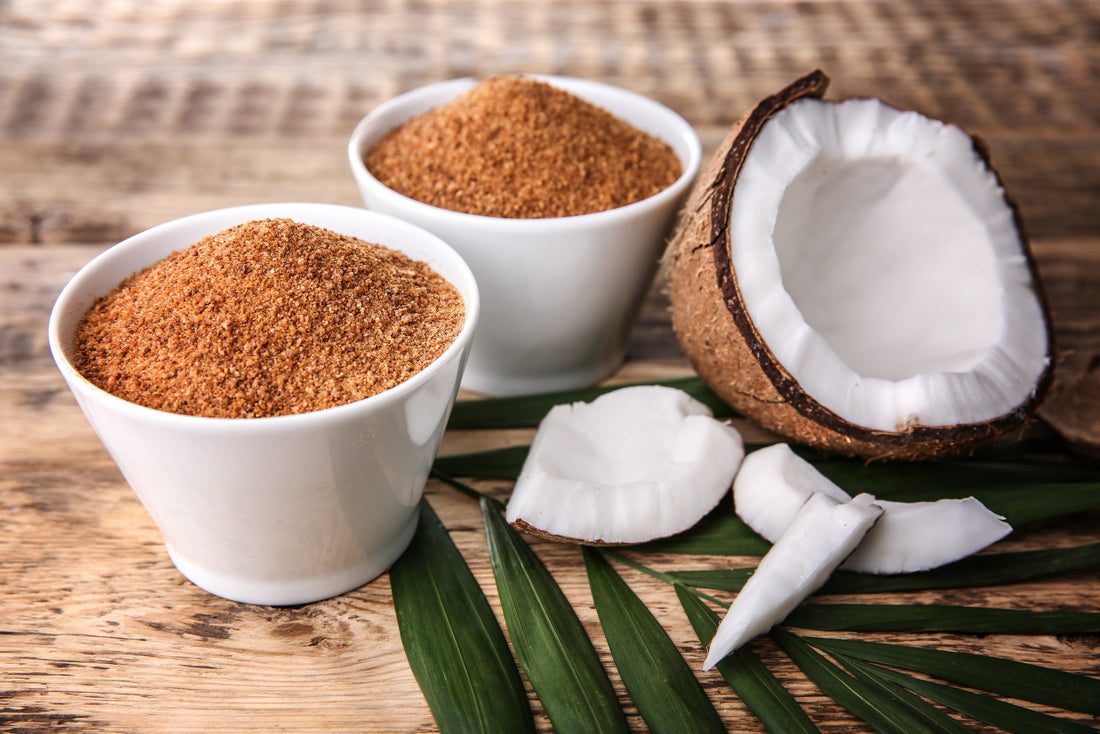Can Coconut Sugar Live Up To Its Healthy Claims or Is It Just a Myth?
The negative ramifications of consuming too much added sugar are becoming increasingly clear. To avoid this, many consumers are turning towards so-called natural sweeteners, such as coconut sugar. Extracted from the coconut palm tree, this sugar is claimed to contain more nutrients and have a lower glycemic index than conventional sugar. In this article, a comparison is made between what the science says and popular claims, to evaluate if coconut sugar is actually a sugar free option.
Learn What Coconut Sugar Is and How It Is Produced
Coconut sugar, also known as coconut palm sugar, is a sweetener made from the sap of coconut palm trees. The sap is harvested from the flowers of the tree, then heated until most of the water has evaporated. The result is a granulated sugar with a color similar to raw sugar, but with varying levels of particle size.
Is Coconut Sugar More Nutritious Than Cane Sugar?
Not Really. Table sugar and high fructose corn syrup provide no essential nutrients, only empty calories. In comparison, coconut sugar claims to contain some beneficial minerals, such as iron, zinc, calcium, and potassium, as well as short-chain fatty acids, polyphenols, and antioxidants. However those small amounts do not add up to a healthier option and you still have sugar.
Though coconut sugar contains some nutrients, it is still high in calories, and it would take an excessive amount to obtain the necessary daily intake of these minerals. Therefore, it is better to obtain these nutrients from real food sources, not sugar.

Table sugar and coconut sugar both have an approximate GI of 60 and 54 respectively. Not a lot of difference.
However, it is important to keep in mind that an individual's GI may be different and that batches of coconut sugar can vary. Additionally, scientists are uncertain as to whether the slight difference in GI has any health implications.
Coconut Sugar Still Contains A Lot of Fructose
Consuming too much added sugar can lead to a variety of health problems, such as weight gain, diabetes, heart disease, and tooth decay.
The dangers of added sugar are not to be taken lightly. In addition to its high sugar content, this sweetener can also pose a risk to one's overall health and wellness due to its lack of essential vitamins and minerals.
Furthermore, its high fructose content has raised some serious concerns among scientists, with many believing it may be linked to metabolic syndrome in those who are already obese.
For these reasons, it is important to limit how much added actual sugar we consume on a daily basis in order to protect our health. Sugar is still sugar.
Despite being advertised as a fructose-free alternative to regular sugar, coconut sugar is composed of 70–80% sucrose, which itself is half fructose. Therefore, it can be assumed that a similar amount of fructose is present in both coconut sugar and regular sugar.
It is clear that excessive consumption of either type of added sugar can lead to a variety of health issues such as metabolic syndrome, obesity, diabetes and heart disease.
Summary
In conclusion, coconut sugar is not a miracle food; rather, it is another sugar slightly less processed and should still be used in moderation. Coconut sugar is still sugar. It is not an ingredient that honestly replaces sugar and its issues in maintaining health and wellness.


